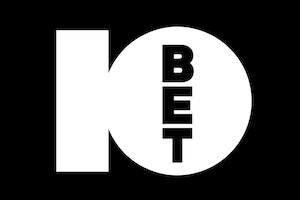If you are thinking about playing at one of the many casinos and new slot sites available in the UK then it’s worth knowing a bit about how the industry is regulated in the this country. Regulation is vital to ensure that gambling takes place in a safe, fair and secure environment where any operator or customer who breaks the rules can be held to account.
This short guide has been written to give you some insight into how the Gambling Commission keeps checks on all the operators it issues licenses to and what obligations those operators have to ensure fair and responsible gambling, as well as covering a bit about what you can do should you find yourself in a dispute with a gambling business.
Online Gambling and UK Law
Gambling online and taking bets from UK customers is legal under two acts of parliament – the 2005 Gambling Act, and the 2014 Gambling Act (Licensing and Advertising). The 2005 act set up the UK Gambling Commission and established a pretty liberal framework within which operators licensed in foreign jurisdictions could advertise and take bets in the UK. Most gambling companies at this time set themselves up in one of the three main licensing jurisdictions – Gibraltar, Malta and Alderney – each of which welcomed big businesses with favourable taxation laws. From these bases, they could then target their products to any country in the world where online betting was legal (and some where it wasn’t).
Since the 2014 Gambling Act operators have also been required to own a license issued by the UK Gambling Commission if they wished to continue transacting with UK customers. In addition, a new 15% Point of Consumption tax for all gambling businesses was introduced in 2014 and levied regardless of where the operator is based. This tax has since increased to 21%.
After the 2014 Act operators continued to reside in foreign jurisdiction and most hold two licenses – one for the UK and one for their host territory.
Online Gambling Licenses in the UK
As a player it is important to know that you should only ever play at a casino that is licensed by the UK Gambling Commission. You will find license details in the footer area of any site you play at. There is also a list of licensed operators on the UK Gambling Commission website.
Some operators will run more than one casino or sportsbook under their license. It is also not uncommon for a company to sub-license their platform and games to another business who has its own brand and who will bear the cost of the marketing to acquire customers. The revenue from those customers is then shared between the two companies. Sites like these are called White Labels – an example would be The Sun Play where The Sun newspaper brings their customers to a casino product on a platform owned by Nektan, a Gibraltan gaming business.
Who Are The UK Gambling Commission and What Do They Do?
More than likely you will have heard of the UK Gambling Commission. Their profile has been raised in recent years thanks to intense coverage of the UK industry in the media, much of it negative.
The Commission was formed in 2005 for the purpose of regulating all gambling activity in the UK, both online and offline from lotteries and bingo through to sportsbook, casino and poker.
The expressed purpose of the Commission is as follows:
- Ensure that gambling operations are fair and open – this covers all aspects of the industry including advertising of promotions. In recent years there has been criticism of opaque terms and conditions for bonuses and the UK GC has reacted by forcing casinos to be more transparent, leading to the introduction of free spins without wagering requirements.
- Prevention of crime and in particular money laundering.
- Protect the vulnerable and underage from being targeted by operators. This covers the area of Responsible Gambling, a topic very much in the news right now.
The Commission will monitor the behaviour of its licensees and has the power to fine any that breach the terms. This has happened in several very high profile cases in the last decade. The Commission also advises the government on changes to the law and commissions research into gambling habits.
A New Gambling Act in 2020?
Despite it’s work the Commission has come under fire recently for being too lenient and not acting quickly enough to recommend changes in the law that will make the UK a better environment for gamblers who want to play responsibly. Pressure has been growing from MPs and the public to bring in stricter rules on how much a player can deposit and wager in an effort to tackle the issue of problem gambling in this country, and the Commission is expected to introduce caps on player spend in 2020 to meet these expectations. You can read more about this and the possibility of a new Gambling Act here.
What To Do If You Have a Complaint
Whilst many of us enjoy gambling online without ever experiencing a problem, for some there may come a time when they feel that they have been treated unfairly by their casino. This might be a bonus that has not been fulfilled correctly, or a game that has not paid out what the gambler perceived to be the correct amount. There are a number of areas that can lead to a dispute between a customer and an operator. Under the terms of their license a casino or sportsbook must deal with this in the correct way.
Firstly, there is a standard procedure whereby your complaint should be escalated from customer support to senior management. However, if a customer feels that they are not getting a fair hearing then they you can have your case referred to a third party known as a Alternative Dispute Resolution (ADR) service. Common ones are eCORGA or IBAS.
You can read more about how to raise a complaint on the UK Gambling Commission website.
Our Top Rated Site Picks
UK Licensed | Expert Reviews
Dream Vegas
Duelz Casino
10bet Casino
Kwiff Casino
Luckster
Latest Game Reviews
Reviewed and Tested For Real!










